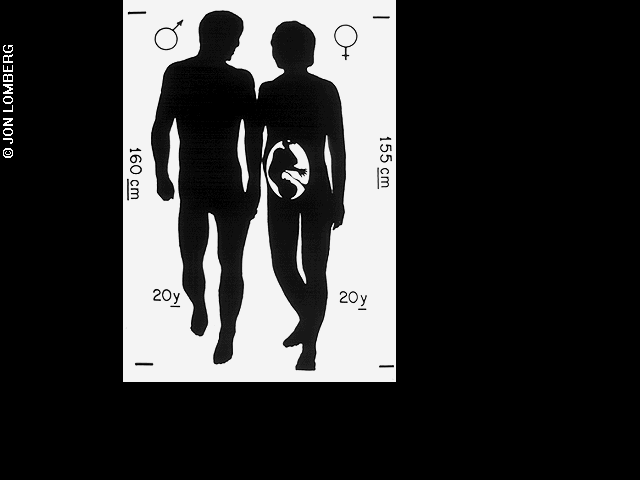The search for man's meaning
Masculine identity in 21st century America
In a previous post, I wrote about what it should mean to be a man. I’m very grateful to Pete Rodrigue for critical commentary that refined and expanded my thinking on this topic. Every good idea here is the result of a joint effort; every inaccuracy or cringey thing is mine alone.
There is a crisis, or multiple crises, around male identity. Christine Emba writes persuasively about the absence of a commonly-held, positive image of positive masculinity, and about how the manosphere is filling that vacuum:
To the extent that any vision of “nontoxic” masculinity is proposed, it ends up sounding more like stereotypical femininity than anything else: Guys should learn to be more sensitive, quiet and socially apt, seemingly overnight. It’s the equivalent of “learn to code!” as a solution for those struggling to adjust to a new economy: simultaneously hectoring, dismissive and jejune.
There is something appealing, too, about the idea of gender neutrality — or at least rejecting gender essentialism — as a social ethos. After all, attaching specific traits to men will redound to women, too. If we say “real” men are strong, does that mean real women must be weak? If men are leaders, are women destined to follow?
I acknowledge that I’m thinking and writing about masculinity from a position of tremendous privilege: I’m a white, upper-middle, cis-gender male, living in a coastal city, with a white collar job. I have a good relationship with my father, my brother, and my uncles.
But I still feel a twinge when I hear the phrase “men suck” uttered casually at a cocktail party, and I have the personal sense that masculinity is an ever-shrinking platform that becomes harder and harder to balance on.
I want to pick up where Emba left off. “The old script for masculinity might be on its way out. It’s time we replaced it with something better.” What form could that script even take?
But before asking about the form of the script, we should pause and ask, why do we even need a script? Why not, as Emba says, reject gender essentialism? Why not assert that there is no such thing as masculinity, or femininity? I think this is totally possible, even if it would take a long time. Things that might seem essentially socially gendered, such as physical strength or child-birthing, are in fact essentially biological: someone can walk and talk and look and act like a man while actually having child-birthing organs.

Even essentially biological things are not the exclusive purview of one sex. Not all females have child-birthing capabilities or are willing to use them. Males might be better at certain feats of physical strength on average, but my maleness doesn’t mean I would be competitive against any Olympic female athletes, or any all-state female athletes, or really any female athlete at all.
Sure, the world’s fastest swimmers and cross-country skiers might be mostly male, but they are a very tiny slice of the general male population. They are mostly men, but the things that make them exceptional –including bizarre physiques and superhuman blood– is something aside from masculinity.
Emba reasons that a positive script for masculinity is a moral good because it would help men today be better people. I agree. However, even aside from the sociological utility of a new script for masculinity, I would be sad if we rejected gender, just for its own sake. It would mean a less rich, less diverse world to live in. I love, for example, bilingual road signs. It’s a tragedy when we lose languages, cultures, and religions to globalization.
Why should we be happy about losing gender? Maybe erasing gender is more like erasing nation-states, but patriotism is not the same thing as jingoism. There is surely some baby in that bathwater.
I’m also increasingly skeptical of the classical liberal notion that we all have intrinsic preferences, that we all know which actions to take to maximize our utils with respect to those preferences, and that we will, in the absence of interfering constraints like gender roles, maximize our utils. So much of our meaning and joy as humans comes from the structures and relationships we inherit and build on and struggle with.
I’m certainly not for oppressive strictures that cause harm and limit people’s potential. But I’m hopeful that we can write a better script for masculinity that is worthy unto itself, even without the motivation of mitigating the manosphere.
So if we are going to keep masculinity, what form could it take? Thinking like an engineer, I ask: what are the design constraints?
First, let’s restrict ourselves to two genders. This means that to be a man must be one thing, and to be a woman must be something else, and the two things must be different. If, in our hypothetical script, men are like X, then women are like not-X.
This bipolarity is certainly not a given. Many cultures have more than two genders (and there is a good Star Trek: Enterprise episode about a species with more than three sexes). I’m not trying to disrespect or erase nonbinary people. My point is that the shape of the script is clearer if men are from Mars and women are from Venus and we leave Uranus out of it. There is less wiggle room, and we must confront the question of gender divides head-on.
Second, let’s assume gender is something we can assign to “blank slate” babies, in fifty-fifty proportions. Historically, this assignment has been based on biological sex (when it could be confidently categorized at birth, and assigned arbitrarily when it could not), but we have systems of randomly assigning people to types regardless of any biological meaning. My favorite is the horoscope. Because I was born between September 23 and October 22, I’m a Libra, which means that I am diplomatic and dislike conformity (both of which are true).

I’m not saying we couldn’t assign initial genders based on biology; I’m only saying that the things we assign to each gender should not have anything intrinsically biological. This is already true of so many traits that we consider masculine or feminine. For example: drink preferences. Men are supposed to prefer dark beers; women, white wines. I’m not sure there’s anything wrong with this, for the purposes of a new gender script. If someone calls me, a man, gay because I’m drinking a white wine, that would be a problem of homophobia, not of white wine being considered a woman’s drink.
To be clear, I’m not saying we would have a law requiring people to drink their gender’s preferred drinks; instead I’m saying that a gender-bending drink choice is a move in the social game that makes gender an interesting and enjoyable social game to play.
There are many other random-at-birth assignments, but they are correlated strongly with family or geography. Where I grew up, you preferred bagels to barbecue and the Yankees to the Mets. Gender is so special because it is not tied to geography or socioeconomics. The two genders are everywhere, across social strata, in equal proportions.
The third constraint, and the real trick, is to avoid associations with labor roles. I believe this is key to a non-oppressive gender system. So long as the jobs with more power or more pay are going to one gender or another, you risk oppression. We shouldn’t write a script in which, for example, men are better at machines than women, because working with machines will either be a position of power, like it is today, or a position of relative servility, like it was 400 years ago. (This also avoids situations when jobs are re-gendered according to their prestige. When airplanes first started taking passengers, it was a high class job, and airline attendants were all male. The script flipped to “airline stewardess,” and now back to gender-neutral “attendant.” When computers first came out, they were seen as tedious machines, and the jobs were all for women. Now we have “tech bros.”)
(Personally, I find it fairly mysterious that so many cultures organize labor around gender. Even if males are stronger and faster on average, why should it be men that go hunting giraffes, rather than the strongest and fastest people? Even if the only people who are giving birth and lactating are females, why should it be the women —fertile or infertile, pregnant or not pregnant, strong or weak— that manage the gardens? I agree that if we had to divide labor by gender, that the division we see might optimize overall economic output, but I don’t agree with the implicit premises that we need to divide labor by gender or that any human society organizes itself around the optimization of economic output. This will be the subject of the third post in this series!)
My hypothesis is that if we stay within these constraints —assignable at random in equal proportions, and not related to labor— we can find some path forward.
Although, to get really meta, my Boy Scout troop’s unofficial motto was “suck it up and deal,” which makes for an elegant, closed logical loop: if being manly means dealing, then our message to men could be: be a man and deal with how it can feel hard nowadays, to be a man.


